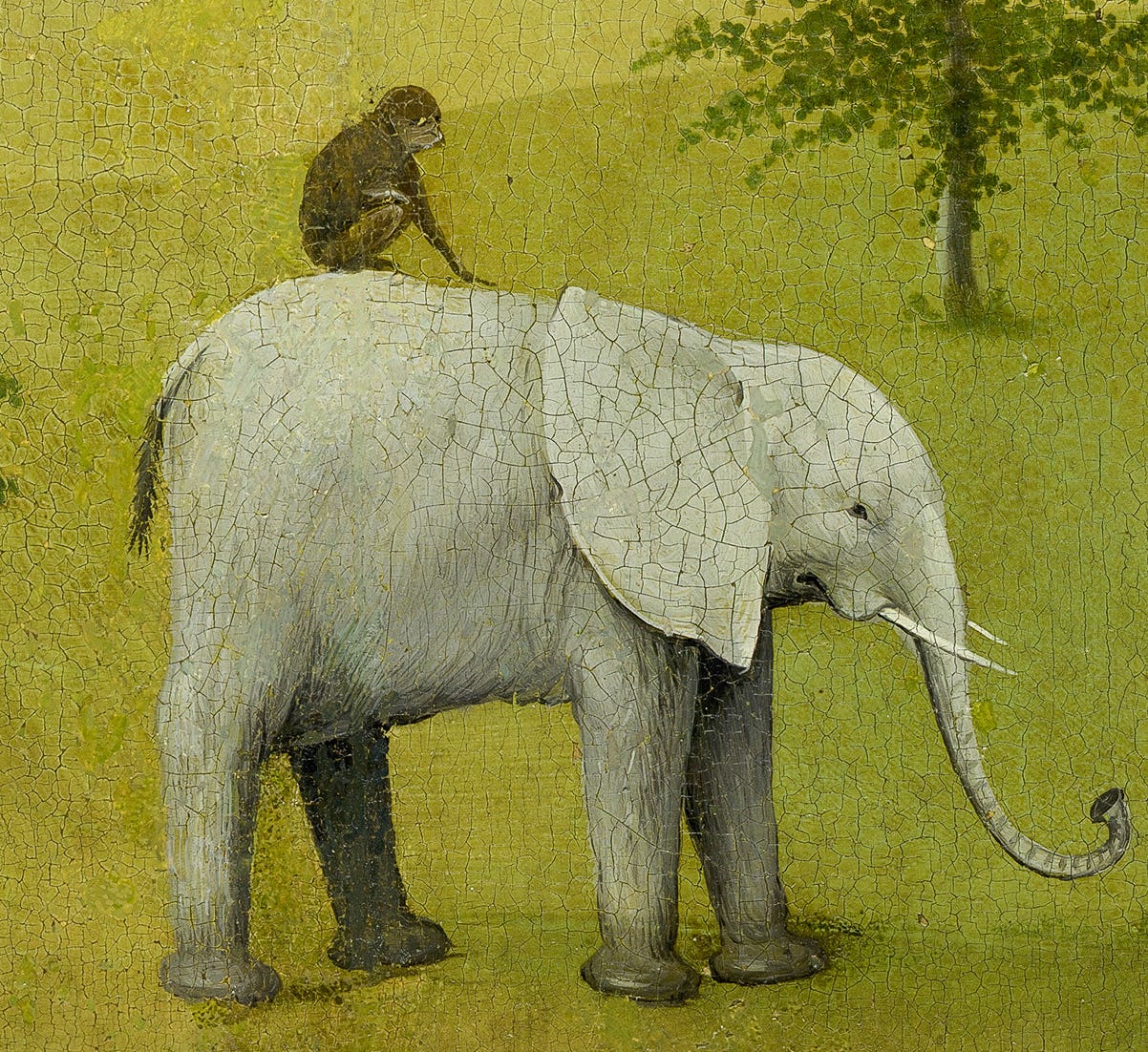'Where the lamb touches bottom, the ox or the cow swims and where the cow swims the elephant forges ahead, and the water goes over his head.'
This is a pretty parable from which one may derive a great deal. My lord St. Augustine says scripture is like the deep sea. The little lamb denotes a simple, humble person who is able to fathom scripture. The ox that swims denotes coarse-grained people: each of these takes out what suits him. But by the elephant that forges ahead we are given to understand clever people who search the scriptures and plunge into them.
…Now what is the meaning of this? St. Augustine says in the beginning scripture looks laughingly at young children, and attracts a child to it, but at the end, when one wants to fathom scripture, it makes fools of the wise: and none is so simple-minded but he can find what suits him there, and there is none so wise that when he tries to fathom it, he will not find it deeper yet and discover more in it. Whatever we may hear, and whatever anyone can tell us, contains another, hidden sense. For whatever we understand here is as different from the way it really is, and the way it is in God, as if it did not exist at all.
—Meister Eckhart, Sermon 83
The metaphor of the elephant entering Buddha's mother is that of memory entering Being: an enormous creature which is alive becoming active within that part of Being which gives birth to a new and higher understanding.
That part of being is female, receptive, fertile, and fecund.
Meister Eckhart oft refers to the soul as a female entity, and, indeed, throughout all sensibly founded matters of spirit, when we encounter the image of femininity in general and women in particular, in their deeper meaning they represent the soul and its capacity for receiving the energy of the Holy Spirit.
Keep reading with a 7-day free trial
Subscribe to Zen, Yoga, Gurdjieff: Lee's Gurdjieff Newsletter to keep reading this post and get 7 days of free access to the full post archives.





